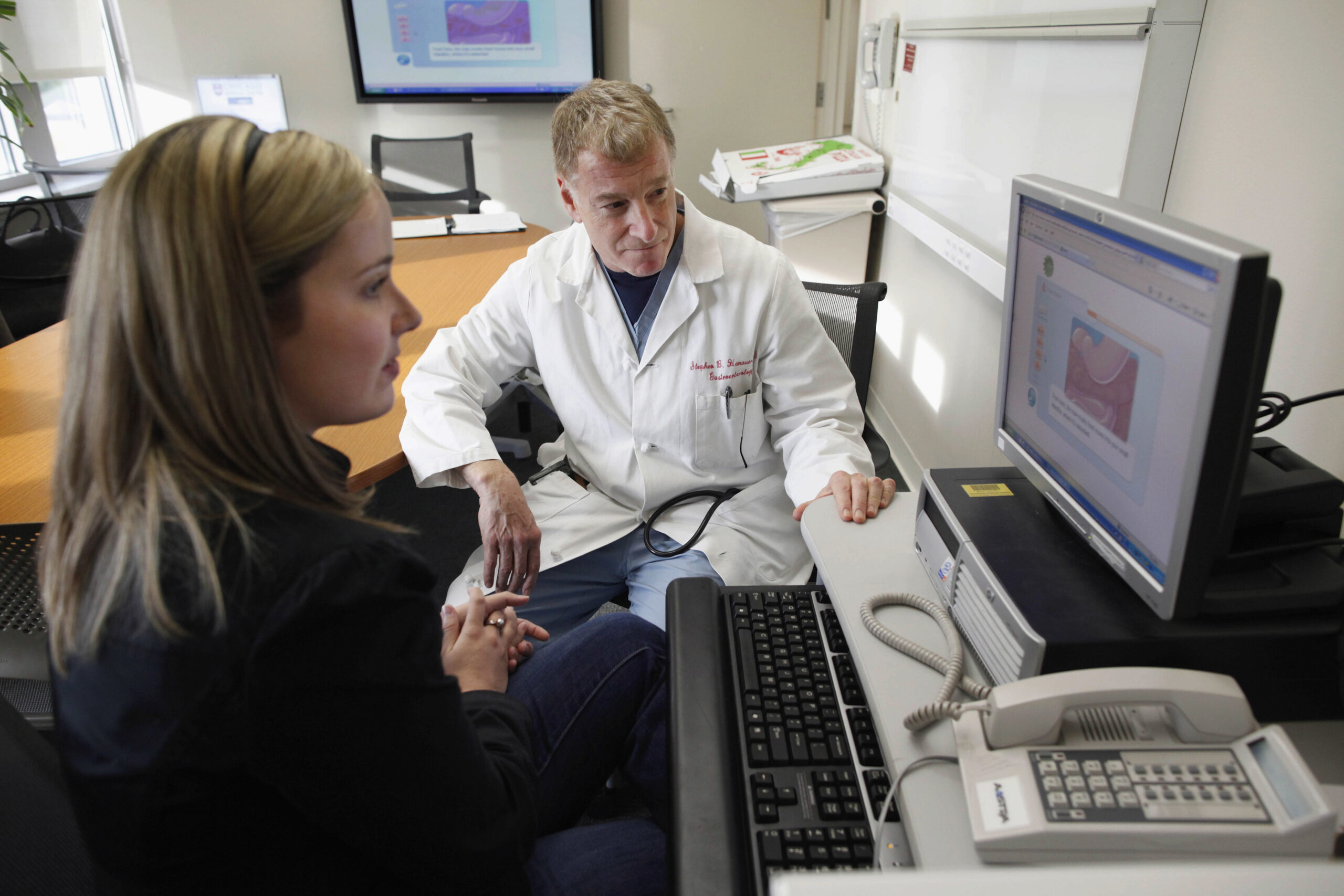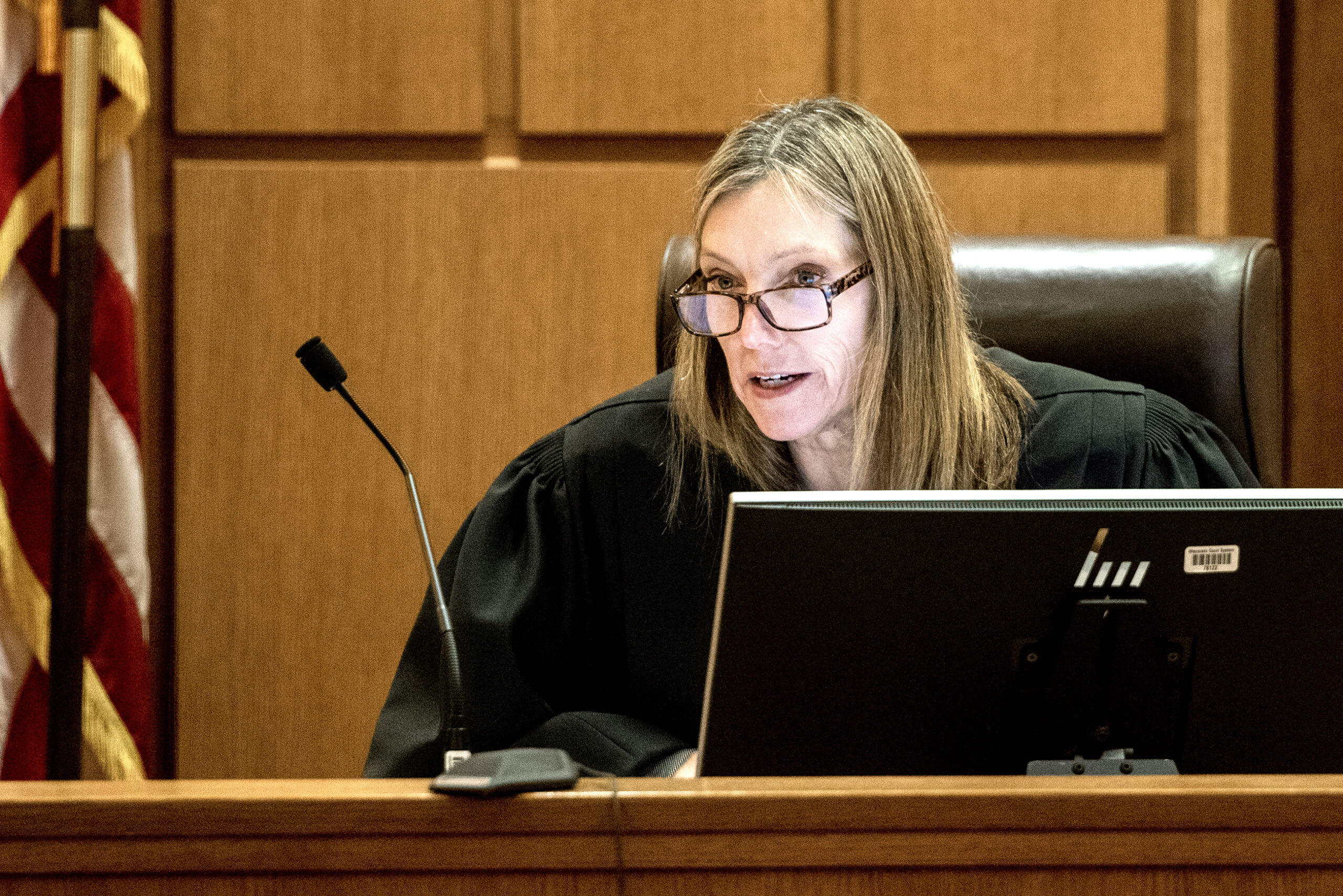For the latest program of “Body Week” on Wisconsin Public Radio’s “The Morning Show,” a Wisconsin gastroenterologist explained the importance of colon cancer screening and broke down myths around gut bacteria and carbohydrates.
Here are three takeaways from the program:
Having healthy gut bacteria
Stay informed on the latest news
Sign up for WPR’s email newsletter.
Dr. Poonam Beniwal-Patel, a gastroenterologist at Froedtert Hospital, said she gets a lot of questions about gut bacteria as the topic of digestive health has become trendier over the last few years.
The roughly 100 trillion microbes in the gut include bacteria, fungi and protozoa — and researchers are learning more and more about how gut bacteria affects human health, she said. Particularly, the medical community is getting a better grasp on how gut bacteria affects the immune system.
“There have been associations between certain gut bacteria and medical conditions, including mental health, obesity, cardiovascular disease and neurologic disease,” she said. “So, probably the best way to have healthy gut bacteria is to make sure that you eat a balanced diet and also partake in regular exercise.”
She encouraged eating foods that are low in salt and saturated fats. She said to eat healthy fats, fruits, vegetables and whole grains. And it’s a good idea to eat some fermentable foods, such as yogurt, kimchi or kombucha.
Probiotic pills might be popular, but Beniwal-Patel said there isn’t one pill that works for everyone.
“If you look at healthy people around the world, you’ll find that people have different bacteria in their (gastrointestinal) tract,” she said. “Part of that depends upon what we eat, the environment (and) genetics.”
[[{“fid”:”1855331″,”view_mode”:”full_width”,”fields”:{“format”:”full_width”,”alignment”:””,”field_image_caption[und][0][value]”:”%3Cp%3EChildren%20play%20in%20a%20huge%20esophagus%20at%20the%20Crad’Expo%20in%20Paris%20in%202004.%20The%20exhibition%20employs%20the%20vocabulary%20of%20children%20to%20teach%20youngsters%20about%20the%20human%20respiratory%20and%20digestive%20systems.%20%3Cem%3ERemy%20de%20la%20Mauviniere%2FAP%20Photo%3C%2Fem%3E%3C%2Fp%3E%0A”,”field_image_caption[und][0][format]”:”full_html”,”field_file_image_alt_text[und][0][value]”:”Children play in a largened esophagus model”,”field_file_image_title_text[und][0][value]”:”Children play in a largened esophagus model”},”type”:”media”,”field_deltas”:{“1”:{“format”:”full_width”,”alignment”:””,”field_image_caption[und][0][value]”:”%3Cp%3EChildren%20play%20in%20a%20huge%20esophagus%20at%20the%20Crad’Expo%20in%20Paris%20in%202004.%20The%20exhibition%20employs%20the%20vocabulary%20of%20children%20to%20teach%20youngsters%20about%20the%20human%20respiratory%20and%20digestive%20systems.%20%3Cem%3ERemy%20de%20la%20Mauviniere%2FAP%20Photo%3C%2Fem%3E%3C%2Fp%3E%0A”,”field_image_caption[und][0][format]”:”full_html”,”field_file_image_alt_text[und][0][value]”:”Children play in a largened esophagus model”,”field_file_image_title_text[und][0][value]”:”Children play in a largened esophagus model”}},”link_text”:false,”attributes”:{“alt”:”Children play in a largened esophagus model”,”title”:”Children play in a largened esophagus model”,”class”:”media-element file-full-width”,”data-delta”:”1″}}]]
Colon cancer rate on the rise
Since the 1990s, Beniwal-Patel said the rate of colorectal cancer in the U.S. has been steadily increasing — specifically in people younger than 50. The U.S. Preventive Services Task Force calls for people to get colonoscopy screening for colon cancer starting at age 45.
“Early colon cancer is treatable,” she said. “We are seeing, again, increased colon cancer in younger patients. We don’t exactly know the reason for that.”
Some possible explanations for the increase include: a more sedentary lifestyle, obesity, smoking, heavy alcohol use and low-fiber and high-fat diets that include a lot of processed meats.
There are scenarios where patients younger than 45 should get colonoscopies, she said. Those include patients with Crohn’s disease, ulcerative colitis or a family history of colorectal cancer or polyps.
Breaking down carbohydrates
Carbohydrates are subject to controversy and discussions about fad diets, Beniwal-Patel said.
It’s worth distinguishing between refined carbohydrates — such as sugar sweetened foods and beverages, pastries, white bread and foods made from white flour — and whole carbohydrates — such as vegetables, quinoa, legumes, whole grains and oats.
Research has shown that diets rich in refined carbohydrates are linked with obesity and Type 2 diabetes, she said. These carbohydrates lead to spikes in blood sugar, which can trigger hunger and cravings.
Whole carbohydrates, on the other hand, are minimally processed and contain fiber that is found naturally in food, she said. Research shows these carbohydrates are linked to improved overall health and lower risk of cardiovascular disease.
“The most important thing to remember is that not all carbohydrates are created equally,” she said.
“Body Week” is a week-long series on Wisconsin Public Radio’s “The Morning Show.” An hour of the program is dedicated each day to one part or system of the body. Thursday’s show featured the gastrointestinal system. Next, we end the week by exploring bone and muscle health. Listen to the show weekdays at 8 a.m. on The Ideas Network. Submit your questions about the body to ideas@wpr.org.
Wisconsin Public Radio, © Copyright 2024, Board of Regents of the University of Wisconsin System and Wisconsin Educational Communications Board.





